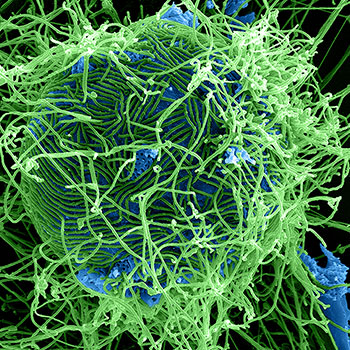In an ELISA test, what reasons could there be for a positive test when you don't have the disease?
1 Answer
Aug 19, 2016
There could be a number of reasons.
Explanation:
A false positive in an ELISA test could be caused by the primary antibody (the antibody that is supposed to recognise the "disease") cross-reacting and binding with something else in the sample.
There is also the possibility that a secondary antibody (an antibody that binds to the primary antibody), which is used to amplify the signal may also bind to the "disease" protein, and therefore not be specific for the primary antibody.
A final possibility could be that either the primary or the secondary antibody binds to ELISA plate because spare binding sites have not been properly blocked.
A correctly designed ELISA should control (i.e. detect) most of these problems occurring.

